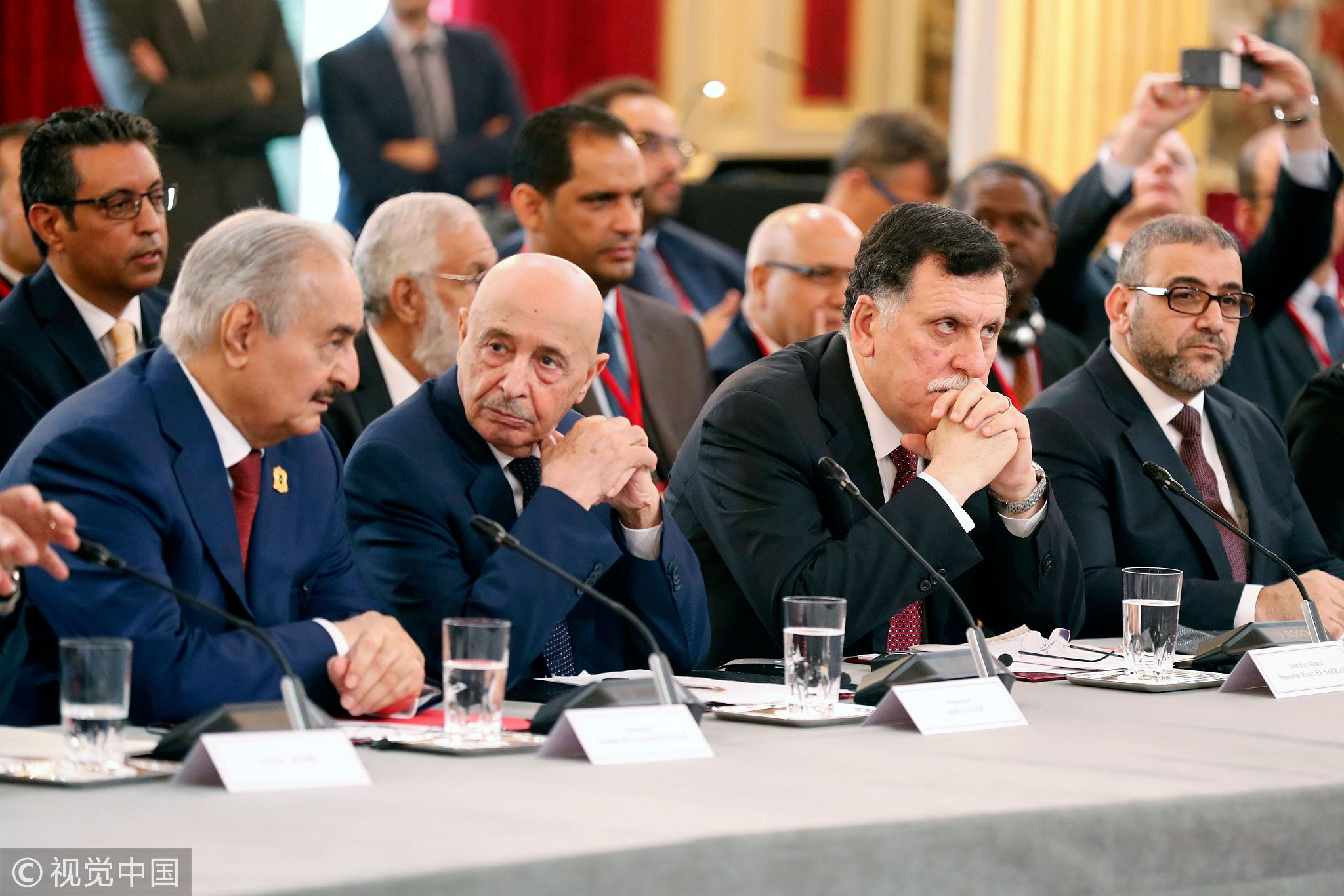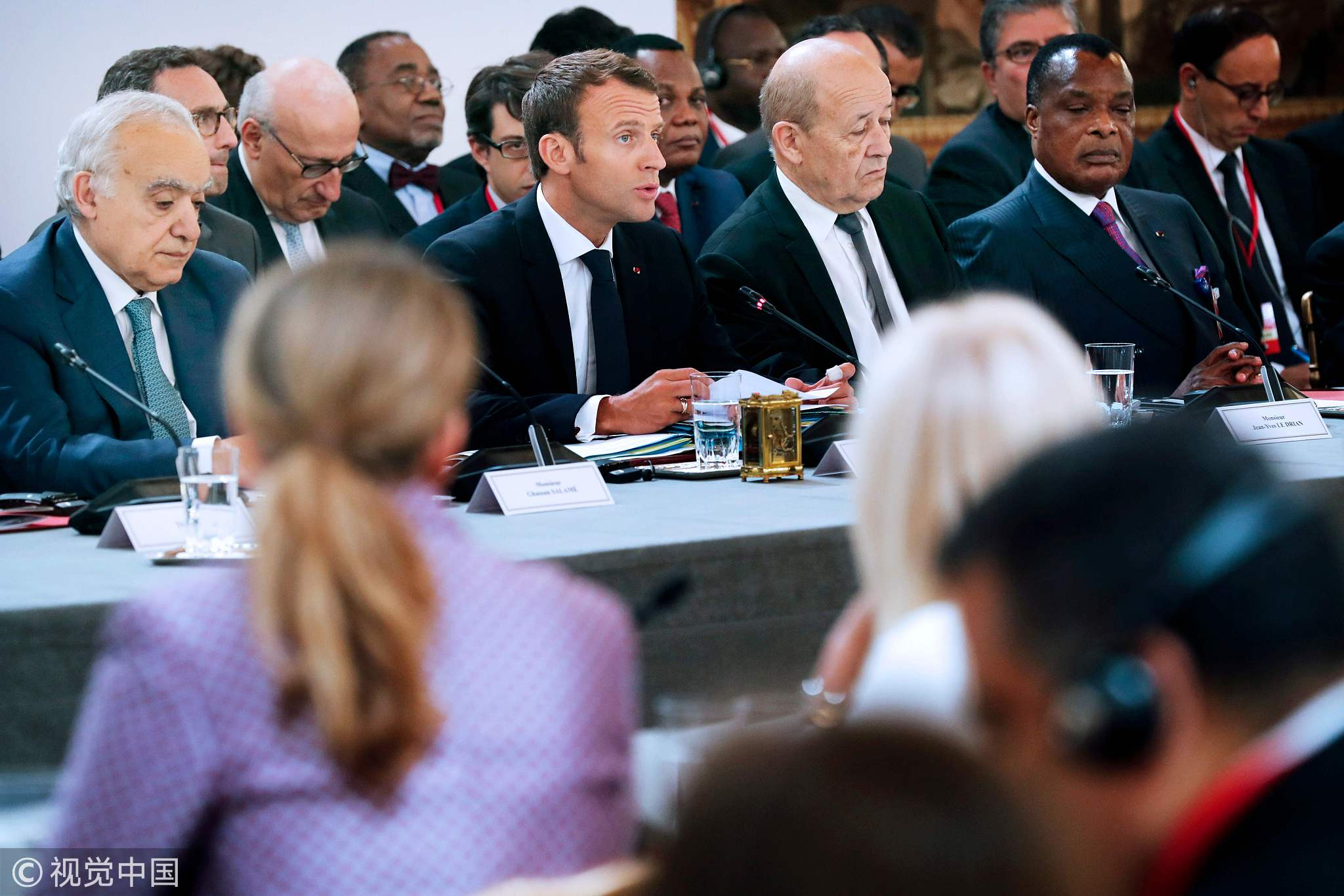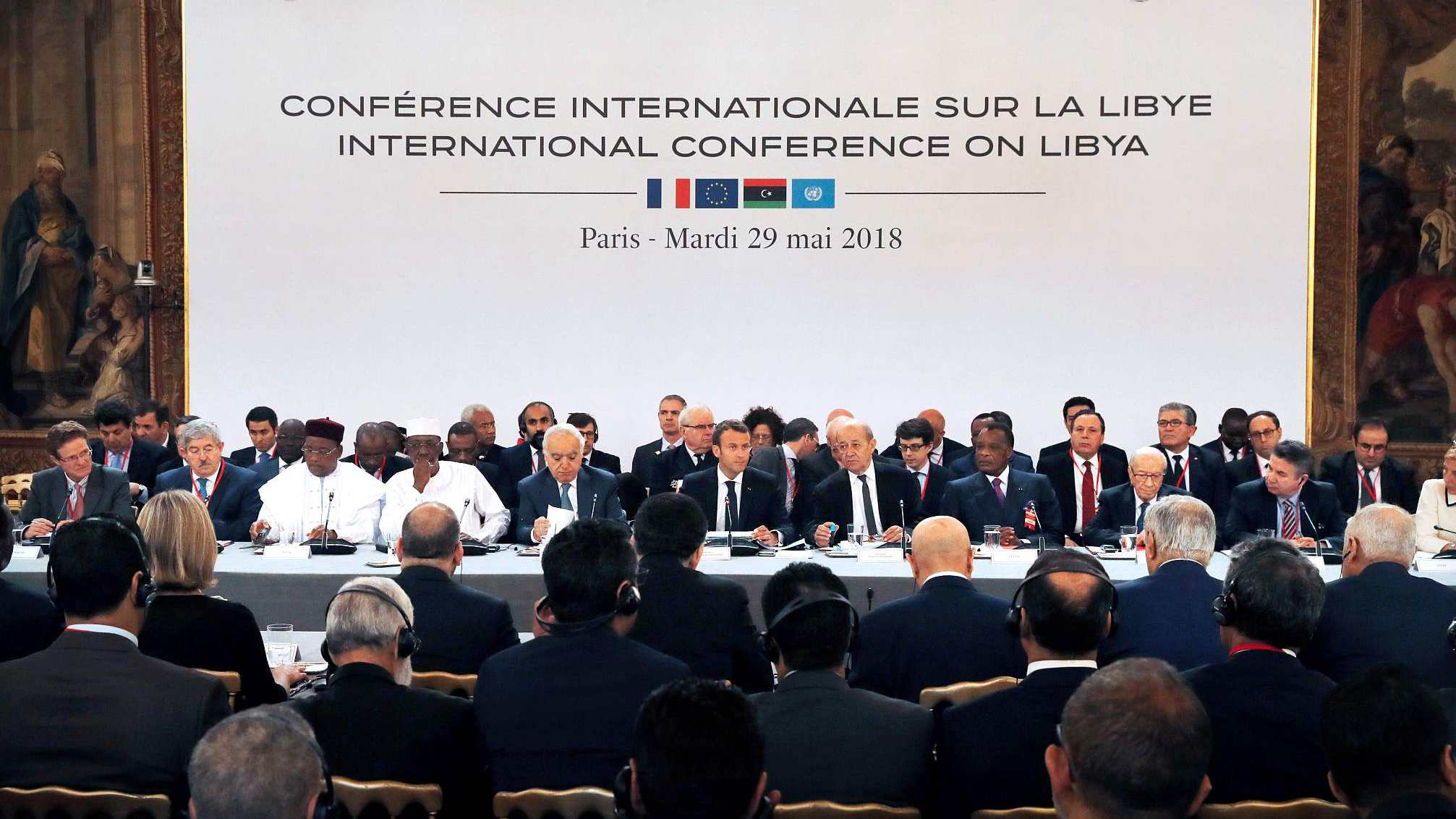Four senior Libyan leaders committed at a Paris peace conference Tuesday to holding elections in the fractured and war-wracked country on December 10, a joint statement said.
"The parties have committed to set the constitutional basis for elections and adopt the necessary electoral laws by September 16, 2018, and hold parliamentary and presidential elections on December 10, 2018," it said.
French President Emmanuel Macron, who hosted the conference, has been pushing the rival Libyans and other representatives from regional powers to agree a political roadmap to stabilize the oil-rich north African state.
The Libyan signatories were Prime Minister Fayez al-Sarraj, head of the UN-backed unity government in Tripoli, and 75-year-old military strongman Khalifa Haftar, whose rival Libyan National Army dominates the country's east.

Libyan National Army's Field Marshal Khalifa Haftar, Libya's parliament speaker based in the eastern town of Tobruk Aguila Saleh Issa, Libya's Presidential Council of the Government of National Accord Fayez al-Sarraj, and President of the High Council of State of Libya Khalid Al-Mishri attend an International Congress on Libya at the Elysee Palace in Paris, on May 29, 2018. /VCG Photo
Libyan National Army's Field Marshal Khalifa Haftar, Libya's parliament speaker based in the eastern town of Tobruk Aguila Saleh Issa, Libya's Presidential Council of the Government of National Accord Fayez al-Sarraj, and President of the High Council of State of Libya Khalid Al-Mishri attend an International Congress on Libya at the Elysee Palace in Paris, on May 29, 2018. /VCG Photo
Aguila Saleh Issa, the parliament speaker based in the eastern city of Tobruk who opposes the UN-backed administration, as well as Khalid Al-Mishri, the newly-elected head of the High Council of State, also signed the statement after around four hours of talks in Paris.
Posing for a group photo, Macron asked his guests to verbally commit to the agreement -- which they did.
"So we are all working on this common basis, bravo!" he said.
Some diplomats and analysts have voiced doubt whether the country, which is swamped by weapons and controlled by a patchwork of political groups and armed militias will be able to hold elections.
Some countries, such as former colonial power Italy, had previously argued that Libya needed to agree on a new constitution before holding elections.
"Libyan leaders commit to accept the results of elections, and ensure appropriate funds and strong security arrangements are in place," the joint statement said.

UN Special Envoy for Libya, Lebanese Ghassan Salame, French President Emmanuel Macron, French Minister of Europe and Foreign Affairs Jean-Yves Le Drian and President of Republic of the Congo Denis Sassou Nguesso attend an International conference on Libya at the Elysee Palace in Paris, on May 29, 2018. /VCG Photo
UN Special Envoy for Libya, Lebanese Ghassan Salame, French President Emmanuel Macron, French Minister of Europe and Foreign Affairs Jean-Yves Le Drian and President of Republic of the Congo Denis Sassou Nguesso attend an International conference on Libya at the Elysee Palace in Paris, on May 29, 2018. /VCG Photo
They also agreed "to improve the atmosphere for national elections" by measures such as "phasing out parallel government and institutions" and working to unify the Libyan Central Bank.
Years of mediation by the United Nations, as well as Italy, have failed to bring stability to the north African nation after it descended into chaos following the ousting of dictator Moamer Kadhafi in 2011.
"It went well. Afterwards, it depends on the implementation," one diplomat said on the sidelines of the talks on condition of anonymity.
Representatives from 20 countries including Egypt, Russia, the United Arab Emirates, Qatar, Kuwait, Saudi Arabia and Turkey attended, as well as neighbors Algeria and Tunisia.
Militias from the Libyan city of Misrata boycotted the proceedings in Paris, however, leaving western Libya under-represented at the talks.
Source(s): AFP




